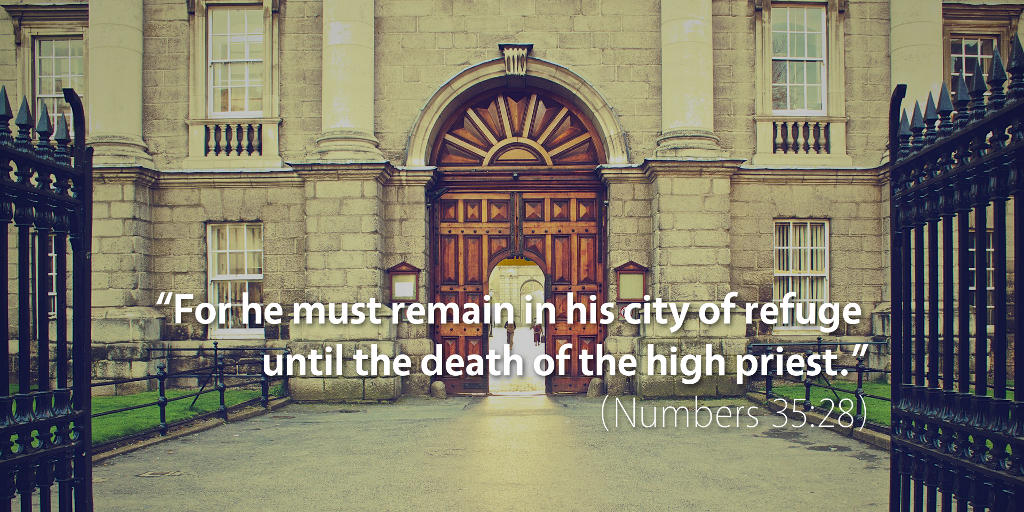Bible Readings for May 26th
Numbers 35 | Psalm 79 | Isaiah 27 | 1 John 5
In Numbers 35, Yahweh lays out a plan for creating cities of refuge—six of the forty-eight cities that the Levites would inhabit (Num. 35:6–7). These cities of refuge were a place for a person to flee until he could stand trial if he brought about the death of another person unintentionally (Num. 35:11–12).
In those days, the closest relative of a murder victim would avenge his relative’s death. So, in cases where someone killed another person with a stone, iron, or wooden tool or where that person had been lying in wait to attack their enemy, that person was considered a murderer, and the proper punishment for murder was the death penalty (Num. 35:16–21). Such a murderer had attacked a human being made in the image of God, and the law had required the death penalty for murderers ever since the covenant with Noah (Gen. 9:5–6). No ransom was permitted to stop the murderer’s execution, since shedding human blood through murder defiled the holy land that Yahweh was giving to his people (Num. 35:30–34).
But there were other cases where someone accidentally caused another’s death, either by striking him in such a way that would not normally cause death and without lying in wait (Num. 35:22–23) or, for example, by dropping something without seeing the other person (Num. 35:23). In those cases, the manslayer could flee to the city of refuge and receive the protection of Levites from the avenger of blood. But even if the manslayer was found innocent of murder at his trial by the congregation of Israel, he would remain in the city of refuge all the days of his life until the death of the high priest (Num. 35:25). If the avenger of blood discovered the manslayer outside the walls of the city of refuge before the high priest had died, the avenger could execute the manslayer without guilt (Num. 35:27).
This provision obviously served a practical purpose in the nation of Israel, but it also foreshadowed the reason why Jesus had to die. Jesus taught that anyone who has even been angry with his brother in his heart is guilty of murder (Matt. 5:21–22), so that not a single one of us stands innocent of blood—and our avenger of blood is none other than Yahweh himself.
But rather than pursuing our death, Yahweh graciously sent his own Son to be our great high priest, whose death meant that we could go free, without fear of Yahweh’s wrath against us. The gospel is first and foremost the story of how Jesus exhausted the wrath of his Father against wicked sinners like you and me, making peace for us through his death on the cross. Rejoice—you may go free, because your high priest has died for you.
Podcast: Play in new window | Download (4.9MB) | Embed
Subscribe: Apple Podcasts | RSS | More

Scripture quotations are from The Holy Bible, English Standard Version copyright © 2001 by Crossway Bibles, a division of Good News Publishers. Used by permission. All rights reserved.


